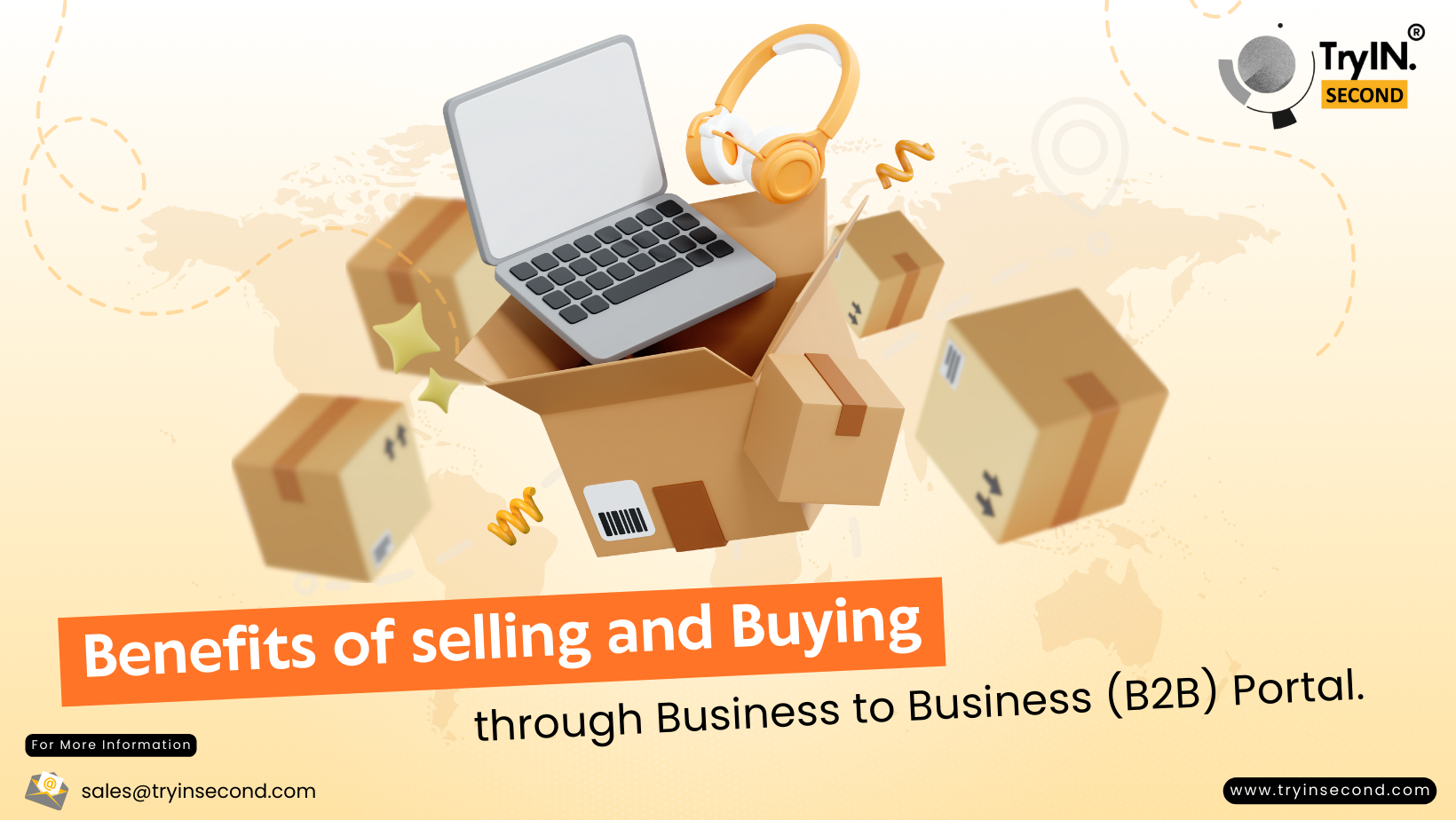
Introduction
Selling and buying goods through Business-to-Business (B2B) portals offer several benefits for businesses, contributing to efficiency, cost saving, time saving, and improved collaboration.
Here are some key advantages:
Benefits for Sellers:
Wider Market Reach: B2B portals provide sellers with a platform to reach a global audience. This expanded market reach allows businesses to connect with potential buyers beyond their local or regional boundaries.
Increased Visibility: Being listed on B2B portals enhances a company’s visibility among potential buyers. This visibility is particularly beneficial for smaller businesses seeking to compete in the wide market 24/7.
Efficient Marketing: B2B portals often provide tools and features for digital marketing, enabling sellers to showcase their products or services through multimedia content, product catalogs, and detailed descriptions 24/7.
Streamlined Transactions: B2B portals facilitate smooth and standardized transactions. Sellers can showcase their product catalogs, set price ranges, manage inventory, and receive orders through a centralized platform, reducing administrative overhead.
Analytics Access: Many B2B portals offer analytics tools that provide insights into buyer behavior, preferences, and market trends. This data can help sellers refine their marketing strategies and product offerings.
Cost-Effective Sales Channel: Utilizing B2B portals can be a cost-effective sales channel, especially for businesses that may not have extensive resources for establishing and maintaining a physical presence in various markets.
Customer Relationship Management (CRM): B2B portals often include CRM functionalities, helping sellers manage and nurture relationships with their buyers. This leads to better customer satisfaction.
Benefits for Buyers:
Access to Diverse Suppliers: Buyers can explore a wide range of suppliers and products on B2B portals, giving them access to a diverse pool of potential partners to fulfill their procurement needs.
Efficient Procurement Process: B2B portals streamline the procurement process by providing a centralized platform for buyers to discover products, compare prices, place orders, and track shipments. This efficiency can lead to time and cost savings.
Transparent Pricing: B2B portals often promote transparency in pricing, allowing buyers to compare costs and negotiate with suppliers. This transparency helps in making well-informed purchasing decisions.
Quality Assurance: Buyers can access detailed product information, specifications, and reviews on B2B portals, aiding in the assessment of the quality and suitability of products before making a purchase.
Time Savings: B2B portals enable buyers to quickly identify potential suppliers, evaluate products, and initiate transactions without the need for extensive travel or in-person meetings, saving time in the procurement process.
Streamlined Communication: B2B portals provide communication channels for buyers to interact with suppliers, ask questions, and negotiate terms. This streamlined communication enhances collaboration and helps in building strong business relationships.
Bulk Purchasing and Discounts: Buyers can benefit from bulk purchasing options and discounts offered by suppliers on B2B portals. This can lead to cost savings for businesses involved in large-scale procurement.
Conclusion
In summary, B2B portals play a pivotal role in creating a more efficient and interconnected marketplace, offering benefits such as expanded market reach, streamlined transactions, transparency, and improved collaboration between sellers and buyers for More Information Visit www.tryinsecond.com